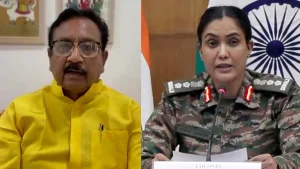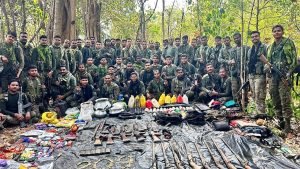Pahalgam Attack: A Pattern Ignored, A Response Repeated

Dubela, Sujoy Pramanick: The attack on April 22 resulted in 28 casualties and 20 injured. Twenty-five Hindu visitors, one Christian tourist, and a local Muslim pony handler who reportedly tried to resist the attackers were among the dead. Armed with M4 carbines and AK-47s, the particularly targeted civilians. The attackers segregated men from women and children, and made them recite Islamic verse before shooting. Fears of a purposeful change in terror targeting patterns within Kashmir have been raised by the strike’s brutality and nature, which have led experts to call it the largest civilian killing in India since the 2008 Mumbai attacks.
The Pahalgam attack exposed serious security flaws. Appropriate precautions were not taken in spite of earlier alerts on potential militant activity in South Kashmir. The government admitted a serious error when they acknowledged that the Baisaran Valley was opened to tourists without alerting security forces. The Resistance Front (TRF), linked to Lashkar-e-Taiba, initially claimed responsibility. In response, India suspended the Indus Waters Treaty, expelled all Pakistani diplomats, and banned every Pakistani citizen residing in India. The government also imposed bans on Pakistani artists and YouTube channels. The cabinet swiftly condemned the attack, with Union Home Minister Amit Shah visiting the site and promising action. Critics counter that there was no long-term responsibility or structural change and that the response was only reactive, going through the same pattern: condemn, compensate, deploy.
A new elected government has been formed in Jammu and Kashmir with Omar Abdullah serving as Chief Minister but the key powers remain with the center through the Lieutenant Governor. The recent attack has reignited fears, leading to a tighter security measure across the valley and tourism- one of the main sources of income, has taken a major dip. Many locals dependent on travel and hospitality have been directly affected. While the government speaks about development and investment, many in the region still struggle to get basic services. Relations with Pakistan remain tense, with increased military activity reported along the LoC.
Global players like the UAE, UK, RUSSIA and US have condemned the violence, urging restraint; the US has even offered to mediate—a sign of growing global concern over regional stability. The Pahalgam attack highlights a deeper issue: repeated security lapses and a lack of long-term counter-terror planning. Despite past incidents, responses remain reactive rather than strategic, raising questions about the effectiveness of current policies and the urgent need for smarter, intelligence-driven measures.
The Pahalgam incident serves as a reminder of how routine our responses have become. Condemn, Compensate, & deploy come next, but not much happens on the ground. True peace in Kashmir will require more than security drills and diplomatic statements; it demands accountability, honest policy shifts, and the political will to act before not after tragedy strikes. They killed a Christian in Nigeria, a Jew in Israel, and now Hindus in India—each killing for their faith. As a Hindu and as an Indian, I ask: why is noticing this pattern considered wrong? Why is silence expected, even in the face of bloodshed?
Author – Sujoy Pramanick
Dept.of Journalism and Mass Communication ( SEM- VI) THK Jain College





